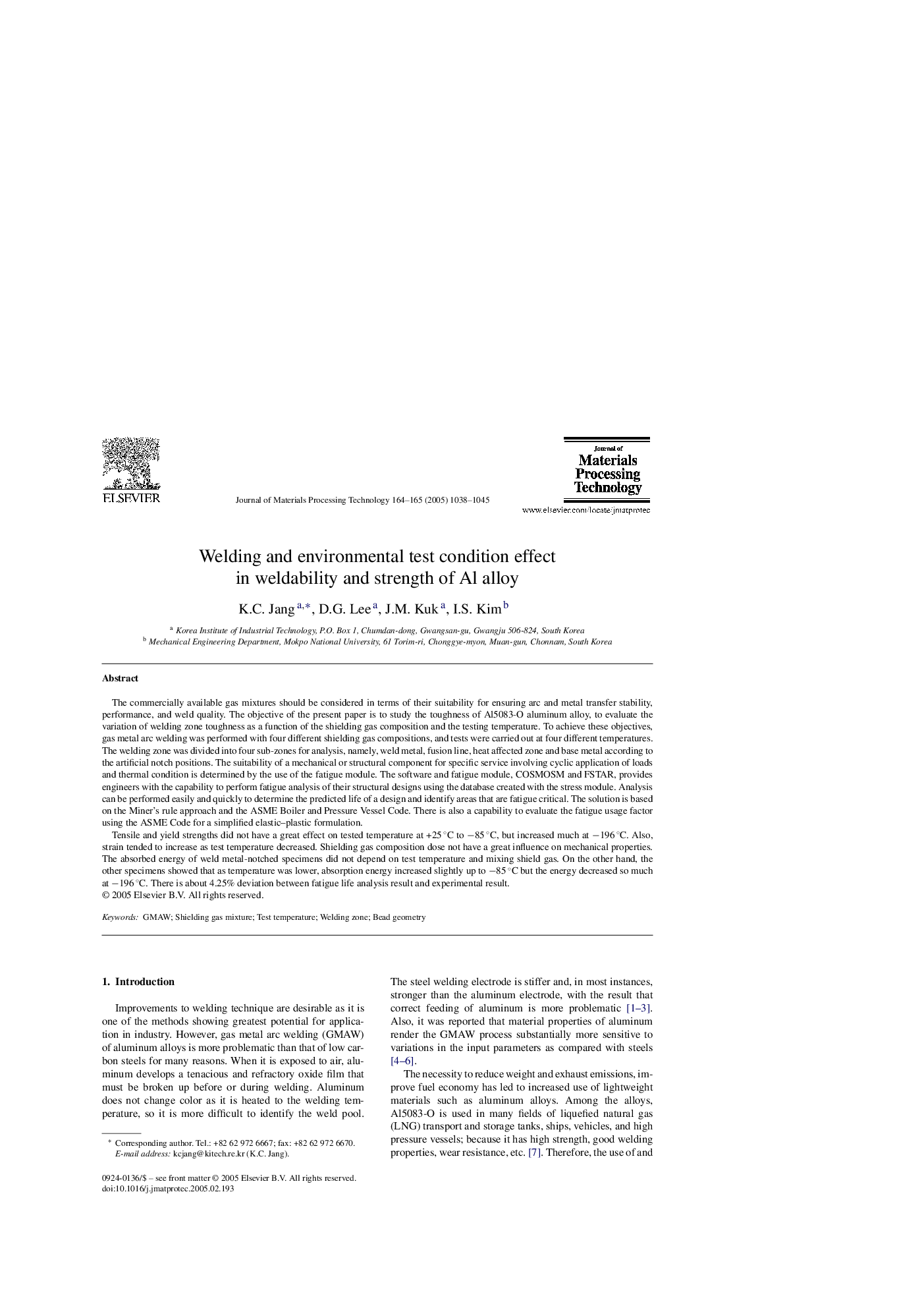| Article ID | Journal | Published Year | Pages | File Type |
|---|---|---|---|---|
| 9708968 | Journal of Materials Processing Technology | 2005 | 8 Pages |
Abstract
Tensile and yield strengths did not have a great effect on tested temperature at +25 °C to â85 °C, but increased much at â196 °C. Also, strain tended to increase as test temperature decreased. Shielding gas composition dose not have a great influence on mechanical properties. The absorbed energy of weld metal-notched specimens did not depend on test temperature and mixing shield gas. On the other hand, the other specimens showed that as temperature was lower, absorption energy increased slightly up to â85 °C but the energy decreased so much at â196 °C. There is about 4.25% deviation between fatigue life analysis result and experimental result.
Keywords
Related Topics
Physical Sciences and Engineering
Engineering
Industrial and Manufacturing Engineering
Authors
K.C. Jang, D.G. Lee, J.M. Kuk, I.S. Kim,
